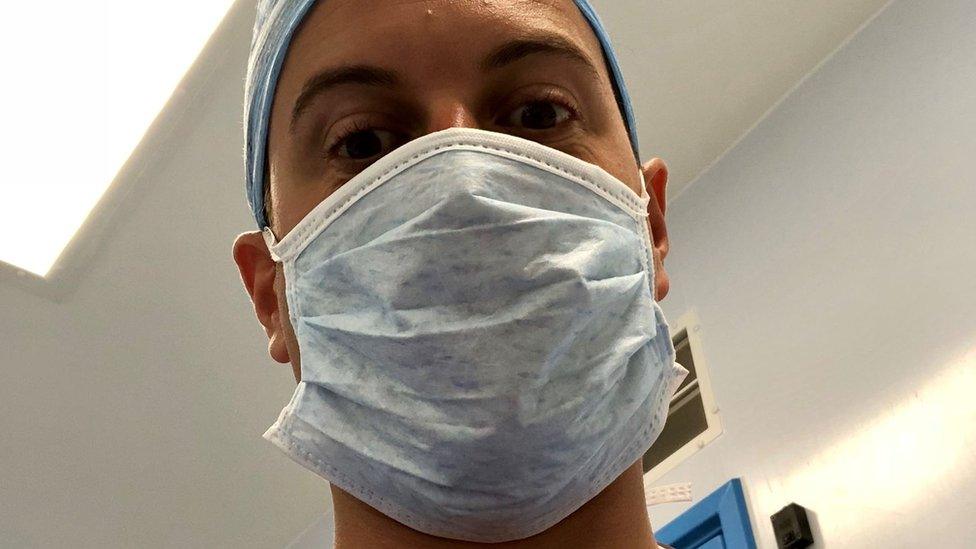King's Lynn hospital layout caused significant Covid challenge
- Published
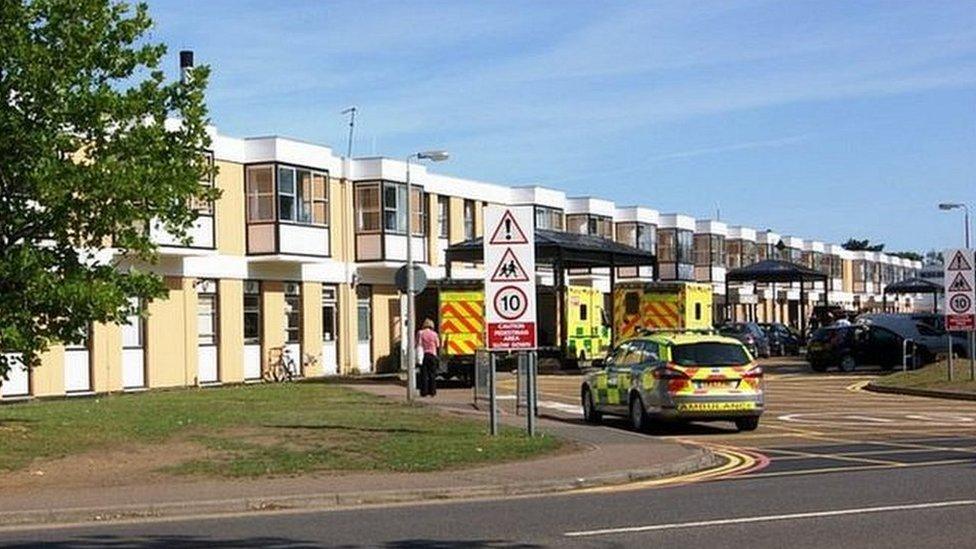
The county council has supported the hospital's case for an urgent rebuild
The layout of wards caused a "very significant challenge to the delivery of optimum care" at an NHS hospital where 151 patients died having caught Covid-19 on site, a report states.
The Queen Elizabeth Hospital in King's Lynn, Norfolk, was built in the 1960s and requires an urgent rebuild.
A duty of candour report said patients were frequently moved between wards.
The hospital said that was "unacceptable" and it had written to patients or next-of-kin to apologise.
The report, released by the hospital, details how analysing the past 18 months could help it improve the experience for patients.
It states the hospital needed more side rooms to help separate patients and minimise the spread of the coronavirus.
"Regrettably some patients experienced numerous moves to try to minimise this exposure," it said, adding that only 10% of patients could be placed in side rooms.
"The environment needs careful consideration to ensure access to side rooms is a priority in any future ward reconfiguration work, as we continue to invest in the much-needed modernisation of our hospital."
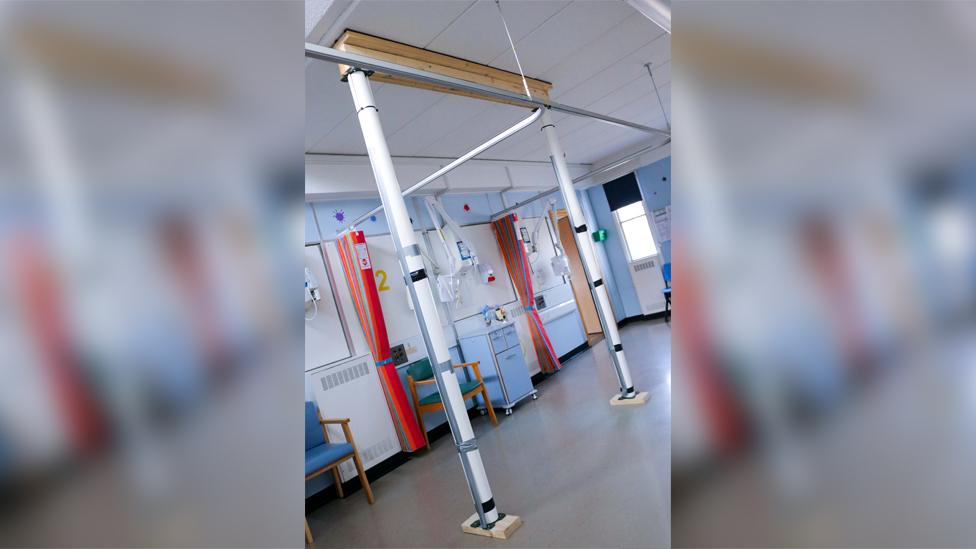
Earlier this year, almost 200 props were being used to hold up the roof at the Queen Elizabeth Hospital
Speaking to the BBC, chief nurse Alice Webster said the hospital "mitigated" the challenges posed by the estate "as best we could".
"At no point were we not able to deliver patient care because of the estate... in an ideal world we would've liked more side rooms, and more capacity," she added.
"As we look through the cases, there is potential patients were in rooms with other people; I think part of the issue is [that] testing in the early stages was not as easy as it is now, and patients were not always symptomatic."
The report revealed 389 patients acquired Covid while at hospital. Of those, 151 died, amounting to a third of the hospital's Covid-related deaths between March 2020 and February.
It said it had written to apologise to each of these patients, or their next-of-kin.
The report also praised staff, many who experienced "extreme levels of anxiety", and had the "emotional burden" of supporting patients while their loved ones could not visit.
"There are occasions we have fallen short or not been able to deliver the care we would have wished for all of our patients and their families, [but] there is lots of good practice that should not be forgotten," the report concluded.
The county council has unanimously supported a rebuild after hearing the hospital roof, propped up by almost 200 supports, posed a "direct risk to the life and safety of patients".
In May, the then health secretary Matt Hancock said he would be "looking closely" at the need for a new hospital.

Find BBC News: East of England on Facebook, external, Instagram, external and Twitter, external. If you have a story suggestion please email eastofenglandnews@bbc.co.uk, external
Related topics
- Published2 September 2021

- Published16 August 2021
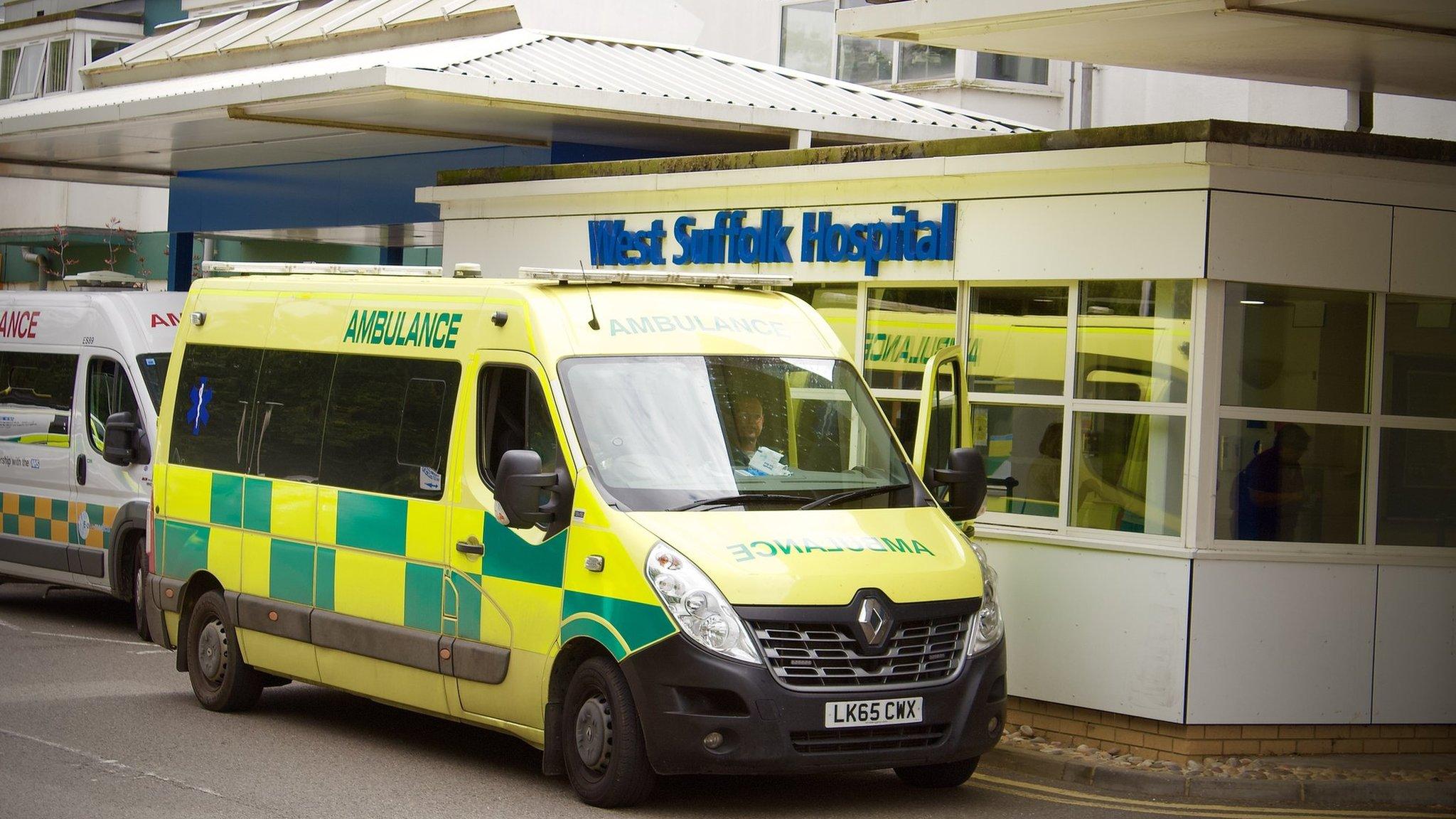
- Published24 May 2021
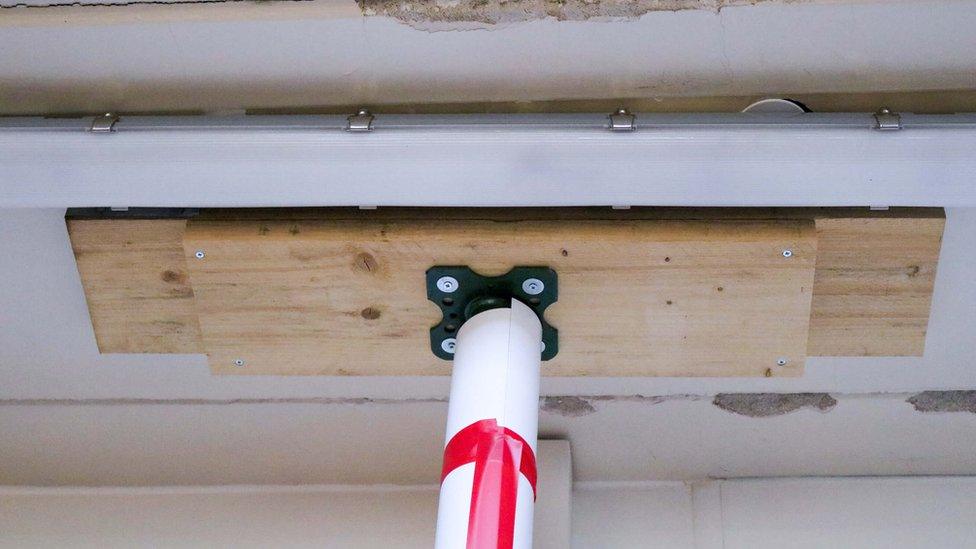
- Published2 April 2021

- Published16 December 2020
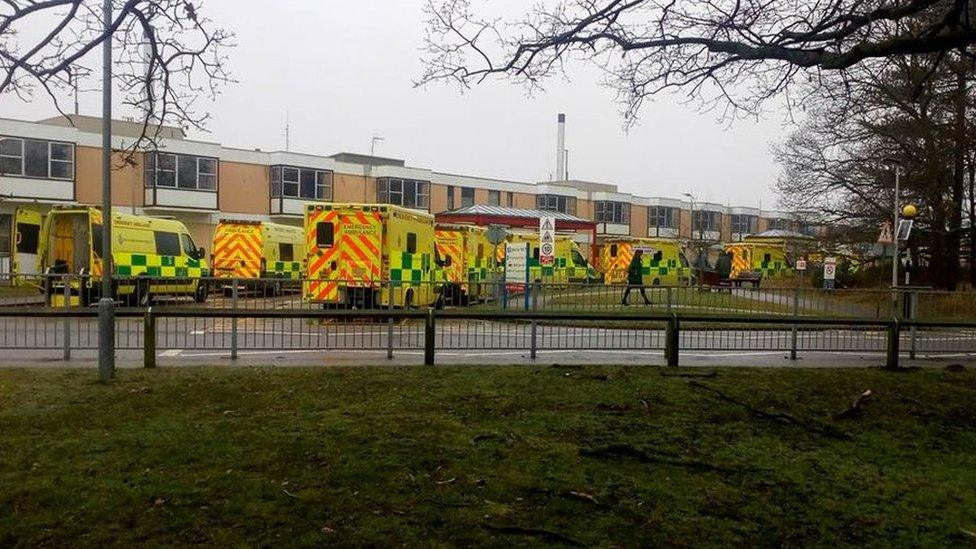
- Published4 September 2020
